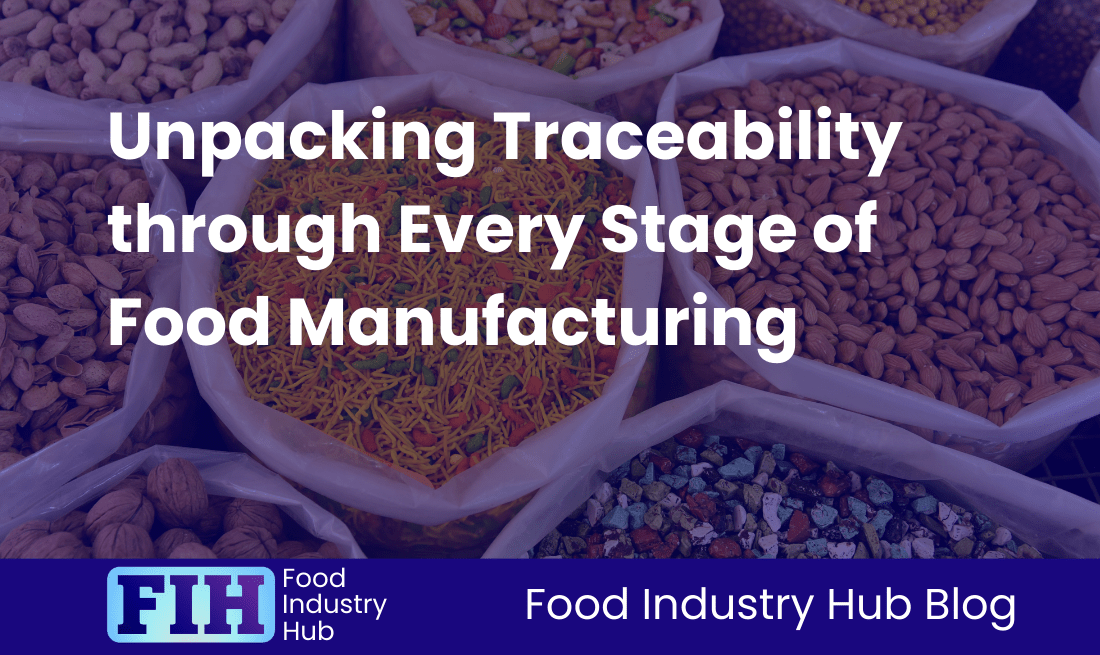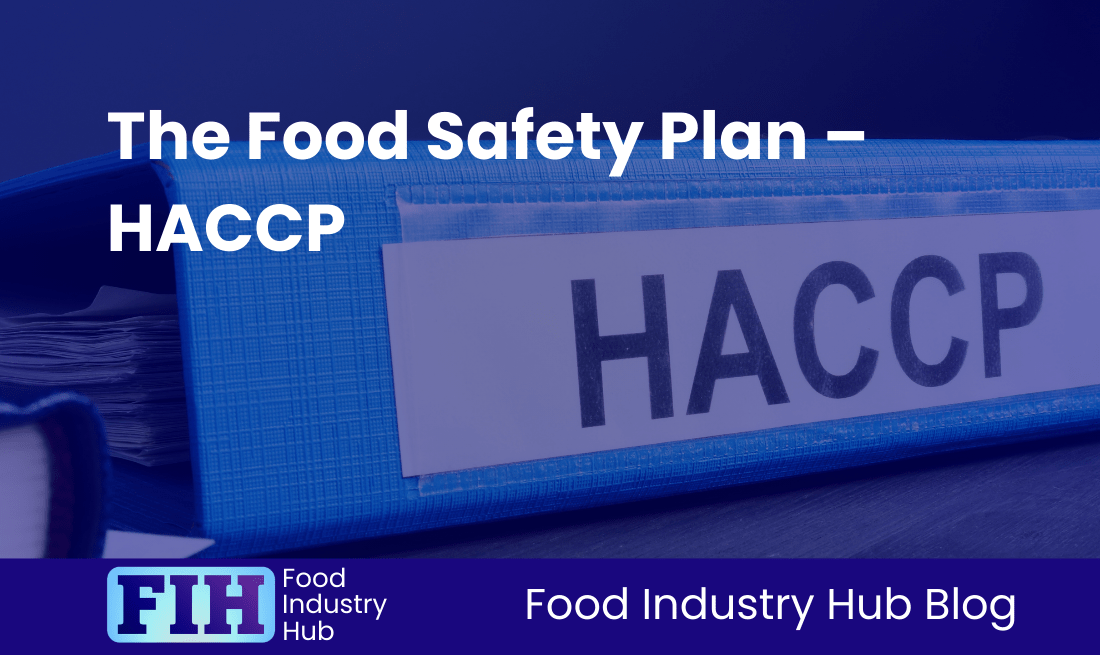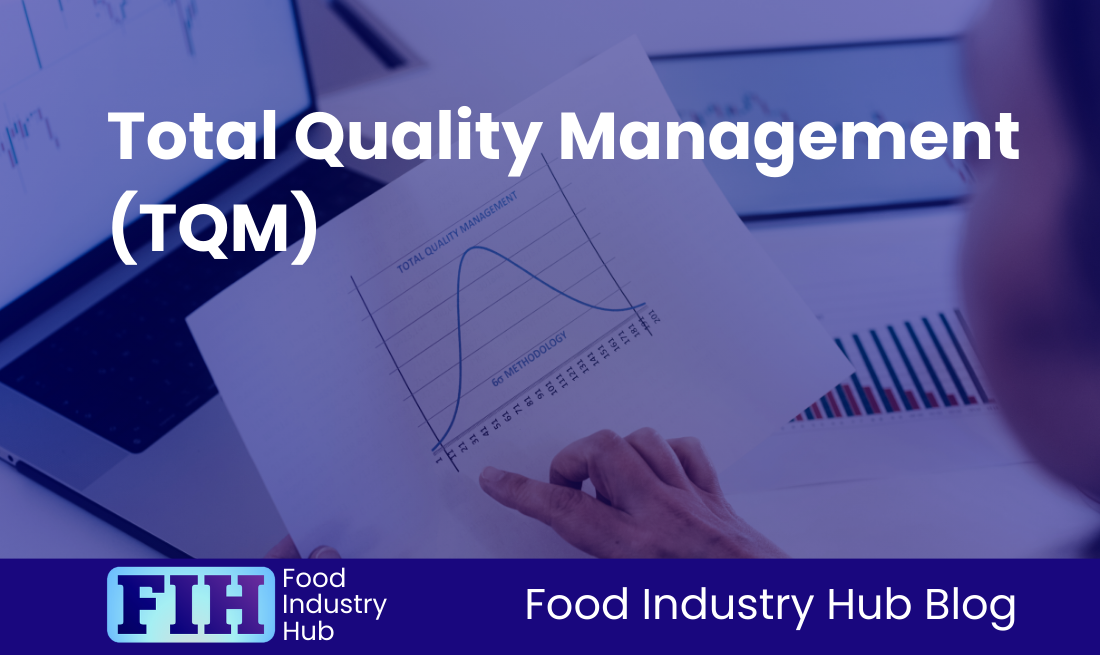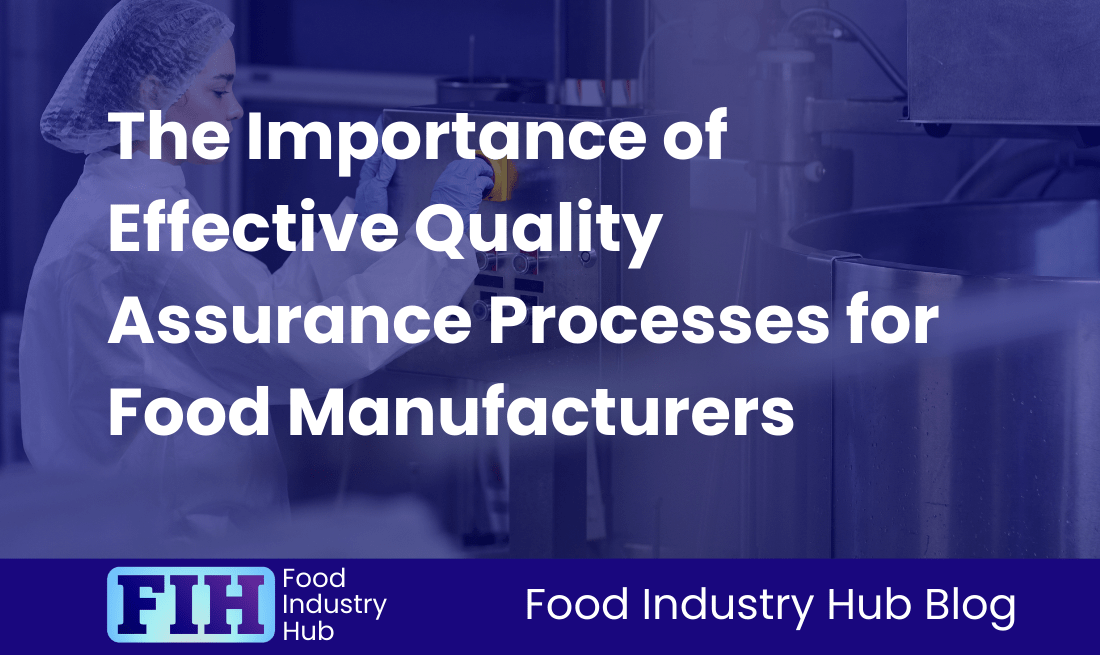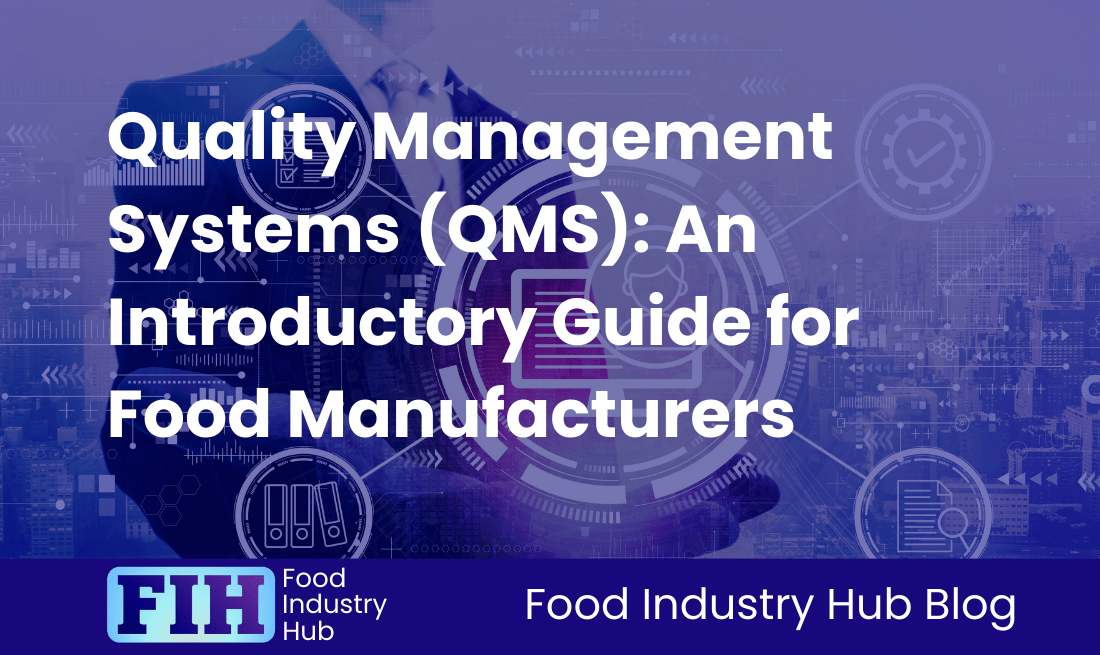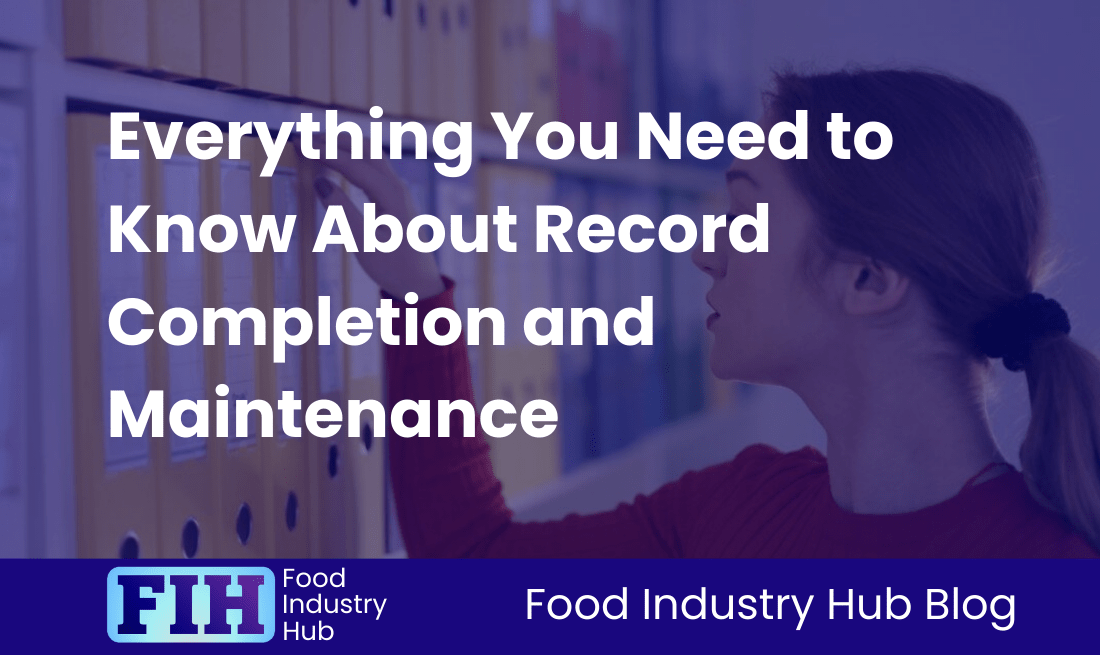Know: Traceability
Contents
Introduction
Key Takeaways
Overview of Regulatory Frameworks Mandating Food Traceability
Crucial Role of Traceability in Ensuring Food Safety and Quality Assurance
Evaluating the Role of Technological Integration in Traceability Systems
Best Practices for Implementing Traceability Systems
Conclusion
Introduction
Now more than ever, the role of traceability in food manufacturing holds significant relevance, thanks in part to escalating consumer mindfulness and regulatory demands. With pressing apprehensions around food safety dominating global food systems, an elevated traceability level has taken centre stage, becoming fundamental in protecting public health and assuring quality. The industry’s recent trends showcase the advent of technologies that enhance food product tracking—fundamentally revolutionising how stakeholders tackle issues of foodborne diseases and supply chain transparency.
Traceability is the methodical tracking of food products throughout their entire lifespan, that is, from production to consumption. This comprehensive approach involves ascertaining the ingredients’ origin, the employed processing methods, storage conditions, and distribution routes. Keeping thorough records empowers food manufacturers to efficiently pinpoint and rectify potential vulnerabilities, such as contamination or mishandling, making it possible to trace products back to their source promptly. With these capabilities, it’s easier to uphold the standard of safety, legality, and the authenticity of the food supply chain.
The importance of traceability is diverse. Firstly, this feature is fundamental in securing food safety by enabling the swift identification and recall of tainted products, consequently curbing public health threats. Secondly, traceability aids in aligning with toughening governmental regulations regarding food safety—ensuring companies can showcase responsibility and commitment to statutory requisites. Lastly, traceability improves transparency, thus enhancing consumer trust by providing detailed information about the origins and processing of food products. As the demand for more visibility into food sources heightens, robust traceability systems will without doubt become fundamental for businesses seeking to foster loyalty and credibility in a competitive marketplace.
Key Takeaways
Compliance with regional and international regulations is a fundamental aspect of effective traceability in food manufacturing. Regulatory frameworks, such as the United States Food and Drug Administration’s Food Safety Modernization Act (FSMA), necessitate the rapid identification and removal of contaminated food products to ensure consumer protection. Similar regulations mandate traceability across different markets. The repercussions of non-compliance with these regulations extend beyond legal consequences, potentially leading to loss of market access, underlining the importance of rigorous regulatory adherence.
Modern technology is revolutionising and strengthening traceability processes. The incorporation of progressive tools like digital traceability systems and automated data management systems provide opportunities for real-time tracking throughout the supply chain. These technological advancements simplify the product monitoring process, aiding manufacturers in maintaining compliance with robust standards, enhancing transparency, and reducing the potential for human error.
The integral role of traceability in supply chain management serves as a linchpin for effective manufacturing practices. Competent traceability systems allow for swift response to safety incidents, assisting in the mitigation of risks connected to contamination and product recalls. Such systems also improve the overall visibility of the supply chain, enabling companies to maintain compliance with regulatory mandates and assuring consumers about product authenticity. By verifying the origins and safety of products, businesses can differentiate themselves from the competition while promoting sustainable practices, contributing to enhanced efficiency and trust throughout the entire supply chain.
Food Industry Hub Management Systems can significantly boost the effectiveness of your food safety and quality management system, leading to improved confidence and elevated quality assurance throughout your operations.
Overview of Regulatory Frameworks Mandating Food Traceability
Traceability in the food manufacturing arena is a noteworthy element to assure safety and compliance on a global scale. Different regulatory frameworks in the world require food traceability, each potentially affecting manufacturers in its unique way. This discussion offers a thorough analysis of key frameworks in the UK, EU, and US, and takes a look at variations on a global level.
Insights into the UK’s Post-Brexit Regulations
Post-Brexit, the UK preserves a strong food safety regulation system, primarily in line with EU precedents, but now governed by its independent laws, including the Food Standards Act 1999 and the Food Safety and Hygiene Regulations 2013. These regulations stress accountability and transparency in supply chains, ensuring that food businesses establish traceability systems to rapidly detect and remove tainted products. Although there is no obligation to comply with EU-specific regulations, the UK maintains comparable global standards like those proposed by the World Trade Organization (WTO) and follows international assurance standards set by organisations such as the Global Food Safety Initiative (GFSI).
Breaking Down the EU’s General Food Law (EC) No. 178/2002
The General Food Law of the EU, detailed in Regulation (EC) No. 178/2002, obligates all food and beverage operators to implement comprehensive traceability systems. This regulation plays an essential role in securing consumer safety by enabling quick responses to contamination incidents. Key aspects comprise:
- Traceability Principle: Establishes the capacity to track food one step backward and one step forward in the supply chain, thereby facilitating rapid identification of sources in situations of concern.
- Consumer Protection: Promotes prompt withdrawal of faulty or contaminated products from the market, thereby protecting public health.
- Regulatory Framework: Although the regulation does not instruct the precise form of the traceability system, it mandates that all businesses possess a system to assure food safety [Source: IFT].
Understanding the US FDA Food Safety Modernization Act (FSMA)
The US FDA’s Food Safety Modernization Act (FSMA) signifies a valuable shift towards a more proactive approach to food safety regulation. It introduces enhanced traceability requirements by mandating additional records for specific high-risk foods. This aids in quicker identification and removal of potential contaminants, boosting food safety across the supply chain. Central points of FSMA traceability include:
- Proactive Measures: FSMA stresses forward-looking safety measures, switching focus from managing outbreaks to circumventing them [Source: FDA].
- High-Risk Foods: FSMA particularly targets certain food categories with higher contamination risks, necessitating detailed traceability records to ensure these risks are effectively controlled.
- Regulatory Compliance: Businesses are under obligation to maintain extensive records to conform with FSMA’s enhanced requirements, promoting a strong sense of accountability within the industry.
Acknowledging Divergence in Global Standards
Global food traceability regulations present considerable divergence, influencing international supply chains. Factors contributing to these variations include:
- National Legislation: Each nation has distinct traceability requirements, differing substantially in scope and detail, with some being more exhaustive than others. For example, the framework of the EU is perceived as robust in comparison to some other regions.
- International Agreements: Bodies such as the WTO and the Codex Alimentarius Commission (CAC) offer frameworks that influence national regulations but do not implement uniform standards.
- Regulatory Challenges: Non-aligned regulations may pose challenges for global food supply chains, especially in cross-border trade and compliance. This can also lead to risks associated with foodborne illnesses courtesy of inconsistent enforcement of safety measures.
While the ambition to uphold high food safety and traceability standards is shared worldwide, the unique regulatory frameworks of different regions call for continuous harmonisation efforts to standardise food manufacturing practices and effectively ensure consumer safety.
Significant Impact of Traceability for Ensuring Food Safety and Quality Assurance
Traceability serves as a fundamental pillar in the food manufacturing industry. It provides the basis for comprehensive tracking of food products throughout the entire supply chain. Tracking everything, from raw materials to the end product, helps in ensuring compliance with safety norms and regulations, thereby reducing the possibility of contamination and the outbreak of foodborne infectious diseases.
An effective traceability system helps in conforming to regulations such as the Food Safety Modernisation Act (FSMA) and Global Food Safety Initiative (GFSI) standards, which help businesses avoid legal ramifications and operational hindrances, particularly in international markets [Source: Food Safety Magazine].
Traceability thus enhances immediate identification and rectification of safety concerns, which is essential when it comes to maintaining consumer trust and safety in food products. It endows food manufacturers with the means to monitor possible hazards throughout the production process, thereby enabling proactive measures that help protect public health.
Efficiency Realised through Recalls
Efficient traceability systems prove incredibly beneficial while managing product recalls, thereby significantly reducing risks to public health. With safety concerns looming, the ability to quickly pinpoint and isolate contaminated product batches is essential to prevent mass distribution, as this could result in significant health issues. Traceability software equips manufacturers with tools to execute product recalls with pinpointed accuracy, ensuring that only the affected products are pulled from the shelves. It is noteworthy that companies employing sophisticated traceability systems can respond to recalls up to 50% faster, thereby offering more effective consumer protection while also mitigating economic losses associated with wide-scale product recalls.
Assuring Consumer Protection and Enhancing Transparency
By amplifying consumer safety, traceability ensures that companies can swiftly identify and withdraw unsafe products from the marketplace. This ability promotes transparency across the supply chain to cater to the growing consumer demand for information about the origins and handling of their food. Providing this detailed information helps increase consumer faith and bolsters the perceived integrity of food products [Source: Processing Magazine]. Regular monitoring of supply chains for discrepancies helps combat illegal activities, such as fraud and counterfeiting, ensuring that consumers receive legitimate and safely manufactured goods.
The Upside for Manufacturers
The adoption of robust traceability systems presents numerous advantages for manufacturers, especially in enhancing overall supply chain efficiency and aiding risk management. By mechanising the tracking process, manufacturers can significantly decrease the likelihood of errors and optimise inventory management, thus guaranteeing compliance with safety regulations and quality norms. These systems also provide invaluable data that can help identify safety issues before they escalate, averting pricey recalls and reducing reputational damage. In turn, traceability not only boosts operational efficiency but also equips manufacturers to confidently navigate intricate regulatory landscapes, ultimately safeguarding their market access and curtailing liability costs.
Sign-up for the Food Industry Hub Mail Service
We regularly produce new content for food industry professionals, and the Food Industry Hub Mail Service is the best way to stay up to date with the latest additions.
Signup today to be added to the Food Industry Hub mailing list.
Evaluating the Role of Technological Integration in Traceability Systems
Today’s food supply chain recognises that technology plays a significant role in enhancing traceability systems. Key technologies, such as the Internet of Things (IoT) and Radio Frequency Identification (RFID), heighten product monitoring capabilities at various stages. This ability allows for real-time tracking and inventory adjustment. For example, RFID tags provide accurate tracking throughout the supply chain, thereby expediting the identification and rectification of contamination risks. This ultimately leads to improved public health outcomes and more efficient operations. With expert input, it’s clear that combining IoT and RFID greatly refines inventory management and logistics, leading to more streamlined traceability practices in compliance with the food industry’s regulatory requirements.
The Rise of Digital Traceability Platforms
The progressive digital traceability platforms of today make use of cloud-based systems to bring together IoT devices and RFID technology. This integration facilitates real-time product tracking across the full extent of the supply chain. Such platforms undoubtedly aid extensive data gathering and analysis, which is essential for maintaining the quality of perishable items and ensuring regulatory compliance on both local and international scales. Software solutions not only increase supply chain transparency but also assist in building customer trust by providing traceability details faster and more effectively than traditional offline methods.
Examining Interoperability Challenges
In spite of these advancements, interoperability presents itself as a significant challenge for the food manufacturing sector. Many outdated systems lack the ability to communicate effectively with modern traceability technologies, leading to fragmented data and less efficient processes. Such disconnection can make real-time data sharing — a key component for successful traceability practices and regulatory compliance — problematic. Industry consensus suggests that establishing common standards would be beneficial for overcoming these obstacles, so that differing platforms could function together efficiently without any technical barriers.
Best Practices for Implementing Traceability Systems
Developing reliable traceability systems in food manufacturing is essential in bolstering product safety, compliance with regulations, and nurturing customer trust. Food manufacturing Small and Medium Enterprises (SMEs) need to embrace practical strategies, in harmony with their operational setups, to achieve successful traceability.
A principal step towards this involves the adoption of integrated technology platforms tailored to the food industry. Precise tracking from source to consumer becomes feasible with the application of specialised traceability software or ERP systems which significantly refine data capture of significant tracking occurrences and important data entities throughout the supply chain.
Ensuring end-to-end visibility across the supply chain is essential. It is advisable for food manufacturers to establish systems that enable quick identification and isolation of problems during contamination events or recalls. This integrated perspective reduces risk exposure and financial loss by guaranteeing potential issues can be tracked back competently across the supply chain.
Digitalising and centralising data is vital. Transitioning from manual, paper-based recordkeeping to unified digital systems is an advantageous practice. It leads to better information consolidation, avoiding fragmented data silos and processing delays. Such a transition propels efficiency and betters the reliability of audit trails, enabling optimal management of regulatory compliance.
Steps to Develop a Strong Traceability Framework
Building an effective traceability framework requires methodical planning and execution. Food manufacturers keen on elevating their systems can follow these operative steps:
Start with a comprehensive assessment of current processes and gaps. Evaluate existing capabilities and identify the areas that need enhancement aligning with regulatory compliance requirements.
The next step is to define traceability objectives by outlining the products, processing stages, and key data elements requiring tracking. Clear objectives enable manufacturers to synchronise their traceability endeavours with wider business objectives, ensuring safety, efficiency, and conformity to legal standards.
The assignment of unique identifiers such as batch numbers or RFID tags for raw materials and finished products is a significant role player. It enables accurate product tracking throughout their lifecycle, resulting in efficient inventory management and enhanced consumer information.
Selecting an appropriate ERP system equipped with integrated traceability modules enhances real-time tracking and strengthens compliance with safety regulations. Regular auditing of these systems aids in identifying potential gaps and encourages continuous improvement in tracing protocols.
Prioritising Training and Awareness for Staff
Training and awareness are indispensable for the effectiveness of traceability systems. It is essential for employees to perceive the value of traceability protocols and to appreciate their role in ensuring food safety.
Effective training programmes must concentrate on the hands-on application of tracing systems and stress the importance of data accuracy. Adequate training enables staff to consistently follow traceability protocols and minimises errors. For instance, practical training tailored to the roles of production staff and Quality Assurance teams improves compliance and involves employees in executing recall protocols and safety measures [Source: AIMS Press].
Also, nurturing an environment of collective responsibility among staff is necessary. Making sure that every employee sees themselves as an integral part in maintaining traceability data can enhance process adherence and data quality. To keep these procedures current, regular updates and refresher training sessions should be planned to reinforce the ongoing changes in procedures, technologies, and laws affecting traceability methods.
By focusing on these best practices and investing in thorough training, food manufacturers can devise effective traceability systems that not only comply with safety regulations but also enhance operational efficiency, ultimately protecting public health and reinforcing customer trust.
Conclusion
In the food manufacturing industry, traceability is key to ensuring safety, quality, and compliance. This practice provides a transparent and accountable system which tracks food products throughout every step of production, process, and distribution, thereby playing an integral role in protecting public health, cultivating trust among consumers, and adhering to ever-evolving regional regulations.
Significance of Traceability in Ensuring Food Security and Quality
Proficient traceability systems enable food manufacturers to monitor ingredients and products both within a single facility (internal) and across different stakeholders–including suppliers, manufacturers, distributors, and retailers (external). In case of a safety or quality issue such as contamination, allergen existence, or adulteration, this extensive tracking allows for swift identification and isolation of the source. This further assists in preventing the spread of potential harm. For instance, the practice of assigning distinct batch numbers to raw materials and finished goods ensures that any problematic ingredients can be accurately identified, facilitating targeted recalls rather than sweeping, disruptive actions [Source: FDA].
By proactively spotting hazards early in the supply chain, traceability systems greatly minimise the risk of foodborne illnesses and improve product quality, whilst also cultivating a culture committed to timely corrective actions, enhancing safety standards and boosting consumer confidence.
Aligning with Regional Regulations
The complexity of the regulatory environment in which the food manufacturing industry operates is wide-ranging; with prominent agencies such as the U.S. Food and Drug Administration (FDA) enforcing detailed rules like the Food Safety Modernisation Act (FSMA) and the Food Traceability Rule. These regulations require exhaustive record-keeping and transparency, to ensure immediate action can be taken to address potential food safety risks. Compliance with these regulations is achievable through robust traceability systems that document every step in the supply chain, starting from ingredient sourcing to processing, transportation, and storage [Source: FDA].
Regular audits underpinned by traceability data assist manufacturers in demonstrating alignment with legal requirements and industry best practices. This aids in managing risks related to costly recalls, potential legal penalties, and damage to brand reputation.
Utilising Technology for Streamlined Supply Chain Management
Modern practices in food traceability extensively depend on advanced technologies such as barcoding, RFID, digital solutions, and real-time data capture systems. Using these tools allows for a razor-sharp tracking, seamless data integration, and transparent operations across the entire supply chain. Digital platforms also aid in maintaining centralised, accessible records that enhance inventory management, production planning, improve visibility, and enable quick response in case of safety incidents.
Notably, technology enables a meaningful connection among all stakeholders in the supply chain. It automates the process of data collection and reporting, resulting in faster response times, reduced human error, and increased accountability.
Adopting traceability is pivotal in ensuring food safety, quality, and compliance within food manufacturing. By adhering to regional regulations and effectively harnessing technology, food manufacturers can establish transparent, efficient supply chain management practices. These measures not only safeguard consumers and reduce risks but also help maintain the industry’s credibility in a demanding regulatory environment.
About The Food Industry Hub Knowledge Centre
The Food Industry Hub knowledge centre delivers informative content on a variety of topics pertinent to the food manufacturing industry.
You can return to all topics by clicking here.
From The Food Industry Hub Blog
Expanding on this topic with related content from our blog.

